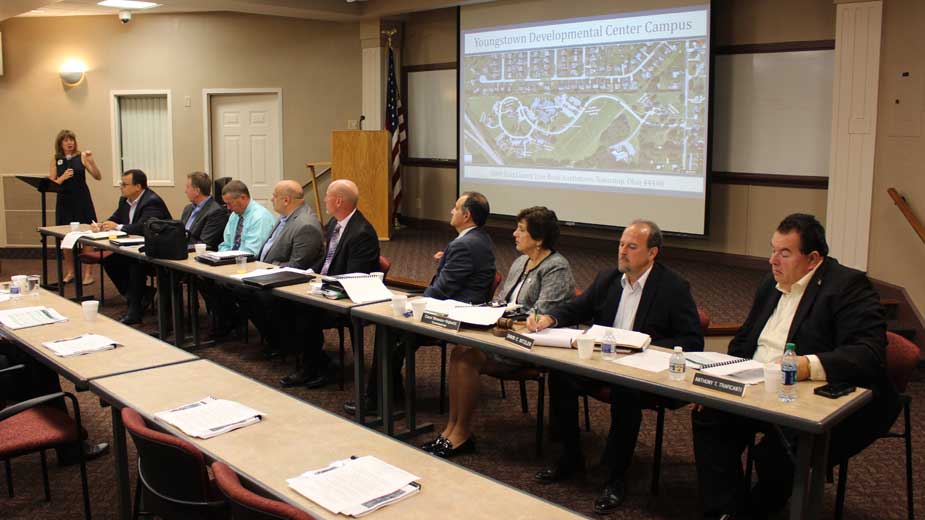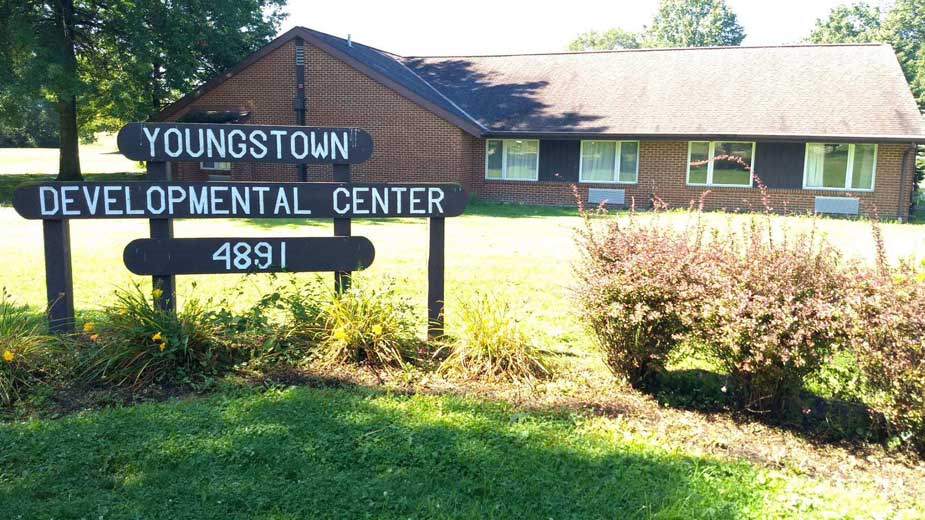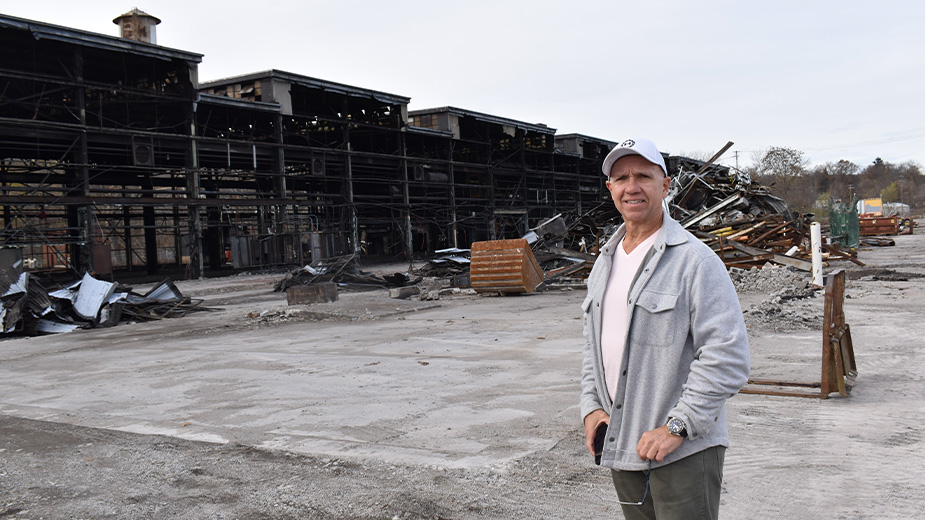As Deadline Nears for YDC Project, More Time Needed
YOUNGSTOWN, Ohio — The Mahoning County Mental Health and Recovery Board and its partners are eager to move into the former Youngstown Developmental Center, but the board is seeking an extension to get startup funding.
The board needs $1.5 million to prepare the 35-acre campus at 4891 E. County Line Road, Austintown, for the agencies that are ready to expand their services there, said Duane Piccirilli, executive director of the Mahoning County Mental Health and Recovery Board. While the board has the commitment from its partner agencies, reaching the June 30, 2020, deadline is proving a challenge, he said.
“We’re asking our state representatives to possibly give us an additional six months, because it doesn’t seem it’s going to happen by June 30,” he said at a Mahoning County Board of Commissioners staff meeting Monday.
The state closed YDC in June 2017.
Piccirilli hopes the funding will come from the state. State Reps. Michele Lepore-Hagan, D-58 Youngstown, and Don Manning, R-59 New Middletown, attended the meeting and were implored by Piccirilli and county commissioners to make the case for the project at the state level.
Both Lepore-Hagan and Manning expressed support for the project. “This is a worthwhile project, it needs to get done,” Manning said. “Our population needs it and it’s good for our area. But it’s got to be done right, we can’t do it just to do it.”
Manning asserted the role of the Western Reserve Port Authority as manager of the property actually cost the project potential funding. The funding was “outside of budget” money set aside for mental health initiatives, Manning said, and leadership in the Ohio House and Senate, as well as Gov. Mike DeWine’s office, are “all on board” with providing the funding to the YDC transition. “And then it fell apart” because legislators wanted the property management to go out to private bid instead of going to another government agency, he said.
“There are some concerns about transparency,” Manning said. “You can hold a private company accountable. You sign a contract with them and it also prevents the appearance of or perception of some sort of any type of corruption.”
The only reason the port authority stepped in to manage the property is because of the partner organizations “and the people they serve,” countered WRPA Executive Director John Moliterno.
“As an agency, we do reach out, we do organize, we do manage. That’s what we do day in and day out, and have been successful at it,” Moliterno said.
When the time comes that the project is complete and management of the property is turned over to someone else, “That doesn’t bother the port authority,” he said.
“So please don’t let that in any way inhibit your cooperation,” Moliterno said. “We feel that it’s too important to this Valley to let it sit dormant or to be sold off as just another commercial property.”
In July 2017, the Mental Health and Recovery Board learned ithat the state had given it control over the former Youngstown Developmental Center campus and had three years to set things up at the property, Piccirilli said. While the board cannot lawfully operate direct services and is “not in the business of managing properties,” the Ohio Revised Code “gives our board of directors the ability to turn facilities over to organizations that share our mission,” he said.
In April 2018, the port authority announced it would partner with the Mental Health and Recovery Board on the project. The port authority worked with the prosecutor’s office to develop a memorandum of understanding to establish an “unusually tight professional partnership,” which enables the port authority to apply for resiliency funding from the state under then-Gov. John Kasich’s administration, said Sarah Lown, public finance manager for the port authority.
“Part of the social contract of a port authority is to provide something like this,” she said.

Last year, the port authority applied for $500,000 in grant funding through the Community Resiliency program, which addresses the needs of families who are at-risk because of the opioid epidemic, she said. The port authority was awarded primary approval for the funds, which it planned to use to provide after-school programs for at-risk youth at the central training building on YDC campus, she said, including mentorship, job skill training, social enterprise opportunities, spiritual counseling, recreation and others.
“It’s the first in our ongoing effort to make this operation up and running to the best possible degree we can,” she said. “So that when the agencies come in, they just have to turn on the lights and serve the people.”
Manning believes the money from the state can still be attained whether it’s set aside or as part of the capital budget, he said, which the legislature will start working on in early 2020. However, he doesn’t think the full $1.5 million is necessary for start-up capital, he said.
“I did look into the proposal that’s actually going around here today, the $1.5 million,” he said. “I think probably that could be tweaked a little bit. I’m not sure that much is needed.”
The $1.5 million factors into the board’s four-year budget to provide the upfront costs to get the agencies into their space so they can begin offering services, explained Mark Dunlap, fiscal officer for the Mahoning County Board of Developmental Disabilities. A monthly common area maintenance charge of $2 per square foot for each tenant would take care of other maintenance, such as lawn care and snow removal, as well as some “big ticket” items over the years, he said.
While discussions about funding continue, partner agencies – Alta Behavioral Healthcare; North East Ohio Network Council of Governments; Easter Seals of Mahoning, Trumbull and Columbiana Counties; YMCA of Youngstown, Compass Family and Community Services; Trumbull County Board of Developmental Disabilities; Potential Development; and Homes for Kids – are eyeing the project as an opportunity to expand.
Compass Family and Community Services looks to increase its services and move its administrative offices to the YDC campus, said CEO Joe Caruso. The organization is currently spread out across Mahoning and Trumbull counties, he said.
“We are out of space from a clinical standpoint for all of our services,” Caruso said. “And if we could consolidate our administrative offices in a building that’s already established for that purpose, that would allow us to be more efficient and effective.”
More space would allow Compass to provide temporary housing to individuals “deemed to be incompetent or at risk for abuse and neglect through the probate court” who are living in unsafe and unsanitary conditions, he said.
Such services would save seniors “a tremendous amount of money” because it reduces “unnecessary early nursing home placement,” Piccirilli noted.
“Compass has been committed from the very beginning to working on this,” Caruso said.
Alta Behavioral Healthcare would also relocate administrative offices to YDC from its Belmont Avenue site, which has been overpopulated with for the last three to four years, said its CEO, Joe Shorokey.
“We had actually begun planning for a significant addition to that building when this project came to be,” Shorokey said. “So we were very excited, still are. Very fortunate that this might be an option to save us a significant amount of money in terms of adding on to our building, while at the same time freeing up a lot of necessary office space on Belmont.”
Alta is interested in moving seven Head Start classrooms and all of its Head Start administration to the 40,000-square-foot central training building on YDC campus, he said, as well as some of its behavioral health programming.
Easter Seals of Mahoning, Trumbull and Columbiana Counties would expand its two largest growth programs, adult day care and skill development programs, and operate them at the YDC, said Executive Director Tim Nelson. Easter Seals currently serves up to 25 senior adults daily at its current location at 299 Edwards St. in Youngstown.
“This would be an ideal location to open up a second adult day care program for us,” Nelson said. “It puts us that much closer to Trumbull County that really doesn’t have any adult day care programs.”
On-site kitchen, lawn maintenance and janitorial work opportunities would benefit the organization’s skill development program for post-high school students, many of whom have autism or other learning disability, he said.
As those two programs expand at YDC, it could lead to additional Easter Seals programs coming to the campus, he said, including adult respite. Of the senior adults the organization serves, “90% of them live at home with a spouse and/or adult child who cannot provide care for them 24/7,” he said.
Respite services are particularly vital in a family emergency, commented William Whitacre, superintendent of the Mahoning County Mental Health and Recovery Board. YDC provided respite services to the entire area — services that were lost when it closed in June 2017, he said.
“I am routinely making decisions to send people to Cambridge, to Tiffin, to Columbus, to Southwest Ohio,” Whitacre said. “That’s where they get their respite now. That’s where they go when they’re in crisis. So now a family has to travel two-and-a-half to three hours to go visit their loved one.”
In addition to benefiting the nonprofits, the project presents opportunities for economic development, Piccirilli said.
“There would be people moving in, working, paying taxes,” he said. “Plus, people would be living there.”
However, the time it’s taking to get the project off the ground has cost some opportunities as well.
Initially, Meridian HealthCare wanted to do some residential programming there, said CEO Larry Moliterno. But the time it’s taking to bring the project to fruition has forced the nonprofit to look elsewhere, he said.
“As an organization we are planning and we have to move ahead, and we can’t wait years before we start projects because we’re looking for space right away,” Moliterno said. “So there’s been some programming that initially we were planning on doing out of this site that, because this project kind of dragged on, we’ve had to go to other Plan Bs and we moved those projects to other properties.”
Identifying the costs of operating on the YDC campus and incorporating them into planning is another challenge, he continued.
“We have to make sure that we have good business plans, and it’s really hard to do if we don’t know what our costs are,” he said.
Piccirilli is all too aware of these issues, which is why the board is requesting an extension.
“But I didn’t want too much more time because we’re losing opportunities,” he said. “I have faith in our commissioners. I have faith in Rep. Manning and Rep. Hagan, and I think they’ll work it out.”
County commissioners Carol Rimedio-Righetti, David Ditzler and Anthony Traficanti said they would work with all parties involved to ensure the project gets the needed funding to come to fruition.
“It was a very sad day” for YDC employees and the families it served when the organization shut its doors, Rimedio-Righetti said, and that has driven the commissioners to see the project through. The transition project would again establish the YDC campus as the “only place in Ohio with complete wraparound service,” she said.
“Mental health and developmental disability have been thrown under the rug for so many years. We cannot do it anymore,” she said. “It’s a good project. Let’s not let it go by the wayside.”
Pictured above: The Youngstown Developmental Center closed in June 2017. It served individuals with developmental and behavioral disabilities.
Copyright 2024 The Business Journal, Youngstown, Ohio.



